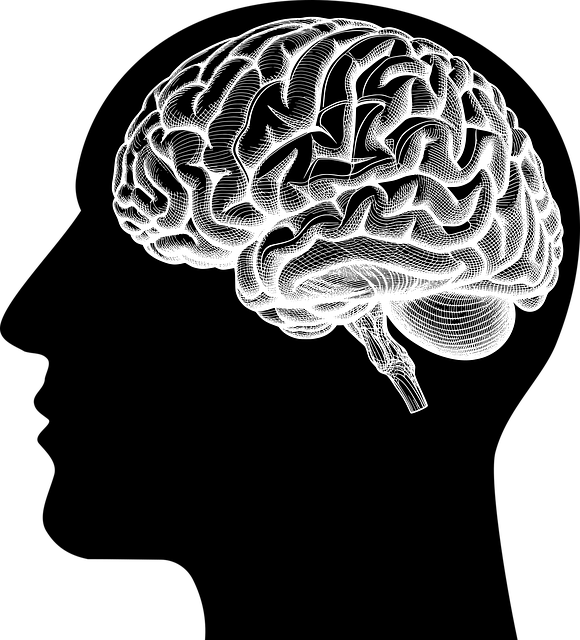Mental wellness in young Russian-speaking children requires a nuanced approach addressing historical and cultural factors. Stigma surrounding mental illness is a significant barrier, especially in rural areas or communities with limited access to services. Culturally sensitive strategies, including open conversations about emotions, emphasizing family bonds, and integrating traditional self-care practices, are essential. Early therapy interventions tailored to Russian-speaking families' specific needs reduce stigma and foster trust. Overcoming language barriers and lack of specialized therapy for young children from Russian-speaking backgrounds is crucial through collaborative efforts and mental health awareness campaigns. Evidence-based therapies, such as CBT and play therapy, tailored for cultural sensitivity support effective treatment. Parent involvement through open communication and normalizing emotional expression is key to fostering mental wellness in these diverse populations. Advocacy for mental health policy analysis focused on family-centered care ensures resources are available to empower parents in promoting their children's resilience and healthy coping strategies.
Mental wellness promotion among young children is a pressing issue, especially within diverse communities like Russian-speaking populations. This article explores strategies to enhance mental health support for this demographic, addressing cultural nuances and unique challenges. We delve into evidence-based practices, including early intervention therapy, to help identify and manage emotional and behavioral issues. Additionally, we discuss barriers to care faced by Russian-speaking families and provide solutions for better access. Understanding the role of parents is crucial, hence, we offer strategies to foster supportive home environments.
- Understanding Mental Wellness in Young Children: A Cultural Perspective (Focus on Russian-speaking communities)
- The Role of Therapy: Early Intervention for Emotional and Behavioral Issues
- Accessing Services: Overcoming Barriers to Care for Russian-speaking Families
- Evidence-Based Practices: Effective Therapies for Children's Mental Health
- Parent Involvement: Strategies for Supportive Home Environments
Understanding Mental Wellness in Young Children: A Cultural Perspective (Focus on Russian-speaking communities)

Mental wellness in young children is a complex topic that demands a nuanced approach when considering cultural perspectives. In Russian-speaking communities, historical and socio-cultural factors significantly influence how mental health issues are perceived and addressed. Traditional values often emphasize resilience and self-reliance, which can be both strengths and challenges when it comes to seeking therapy for young children. While some families embrace modern therapeutic practices, stigma surrounding mental illness remains a barrier, particularly in rural areas or communities with limited access to mental health services.
Understanding the cultural context is crucial for implementing effective mental illness stigma reduction efforts. Russian-speaking parents may respond positively to emotional well-being promotion techniques that are culturally sensitive and incorporate traditional practices. Encouraging open conversations about emotions, emphasizing the importance of strong family bonds, and integrating self-care practices aligned with cultural norms can foster a supportive environment for young children’s mental wellness. By combining traditional wisdom with evidence-based therapies, it is possible to create inclusive and effective support systems tailored to the specific needs of Russian-speaking communities.
The Role of Therapy: Early Intervention for Emotional and Behavioral Issues

Early intervention through therapy plays a pivotal role in promoting mental wellness, especially for young children from Russian-speaking backgrounds. Many emotional and behavioral issues that may seem minor can escalate into more severe mental health concerns if left unaddressed. Therapy provides a safe space for these children to express their feelings, fears, and experiences, helping them develop essential coping mechanisms.
Russian-speaking communities often face unique challenges when it comes to mental health support, including barriers to access and cultural stigma surrounding mental illness. This is where specialized therapy services can make a significant difference. By offering therapy tailored to the cultural nuances of Russian-speaking families, professionals can foster trust and encourage open communication. Such interventions not only help manage existing issues but also contribute to the overall reduction of mental illness stigma through education and advocacy, as part of a broader Mental Health Policy Analysis.
Accessing Services: Overcoming Barriers to Care for Russian-speaking Families

Many Russian-speaking families face unique challenges when it comes to accessing mental wellness services, particularly for their young children. Language barriers can be a significant obstacle, making it difficult to find therapists who speak their native language and understand cultural nuances. This is especially true in areas with diverse populations but limited resources dedicated to mental health policy analysis and advocacy. Overcoming these hurdles requires collaborative efforts between community organizations and healthcare providers to offer specialized therapy for young children that caters to the specific needs of Russian-speaking families.
One effective strategy is providing social skills training tailored to different cultural backgrounds, ensuring that both parents and children feel comfortable in therapeutic settings. Mental health awareness campaigns targeted at these communities can also help reduce stigma and encourage families to seek support. By addressing these barriers, we can ensure that all children have equal access to the care they need for their mental wellness, regardless of their linguistic or cultural background.
Evidence-Based Practices: Effective Therapies for Children's Mental Health

In promoting mental wellness among young children, evidence-based therapies play a pivotal role. For Russian-speaking children and families, tailored approaches that incorporate both cultural sensitivity and empathy building strategies are essential. Therapies such as cognitive-behavioral therapy (CBT) have proven effective in addressing common childhood mental health issues by teaching children coping mechanisms and challenging negative thought patterns. Additionally, play therapy offers a non-threatening environment for young kids to express their emotions and work through traumatic experiences, making it particularly beneficial for culturally diverse populations.
Cultural sensitivity in mental healthcare practice is crucial for building trust and ensuring the effectiveness of interventions. Mental health education programs designed with cultural considerations in mind can empower Russian-speaking parents and caregivers by providing them with the knowledge and tools to support their children’s emotional well-being. By integrating these strategies, we can create inclusive environments that foster healthy development and resilience in young children from diverse backgrounds.
Parent Involvement: Strategies for Supportive Home Environments

Parent involvement plays a pivotal role in fostering mental wellness for young children, especially those from Russian-speaking backgrounds who may face unique challenges navigating cultural and linguistic barriers. Strategies to create supportive home environments include open communication channels where parents actively listen to their child’s thoughts, feelings, and experiences, normalizing emotional expression. Incorporating compassion cultivation practices, such as mindful listening and empathy-building exercises, can enhance family dynamics and reduce mental illness stigma within the household.
Therapy for young children should be accessible and culturally sensitive, incorporating Russian language services where necessary. Mental health policy analysis and advocacy efforts that prioritize family-centered care can ensure resources and support systems are in place to strengthen parental capabilities. By fostering a compassionate environment at home, parents can significantly contribute to their child’s mental wellness journey, promoting resilience and healthy coping strategies.
Mental wellness promotion among young children, especially within Russian-speaking communities, requires a multifaceted approach. By understanding cultural perspectives and incorporating evidence-based practices like early intervention therapy, we can overcome barriers to care. Engaging parents and providing accessible services are crucial steps in ensuring supportive home environments and improving mental health outcomes for Russian-speaking children. Effective therapies tailored to their needs can make a significant difference, fostering resilience and well-being for this vulnerable population.













